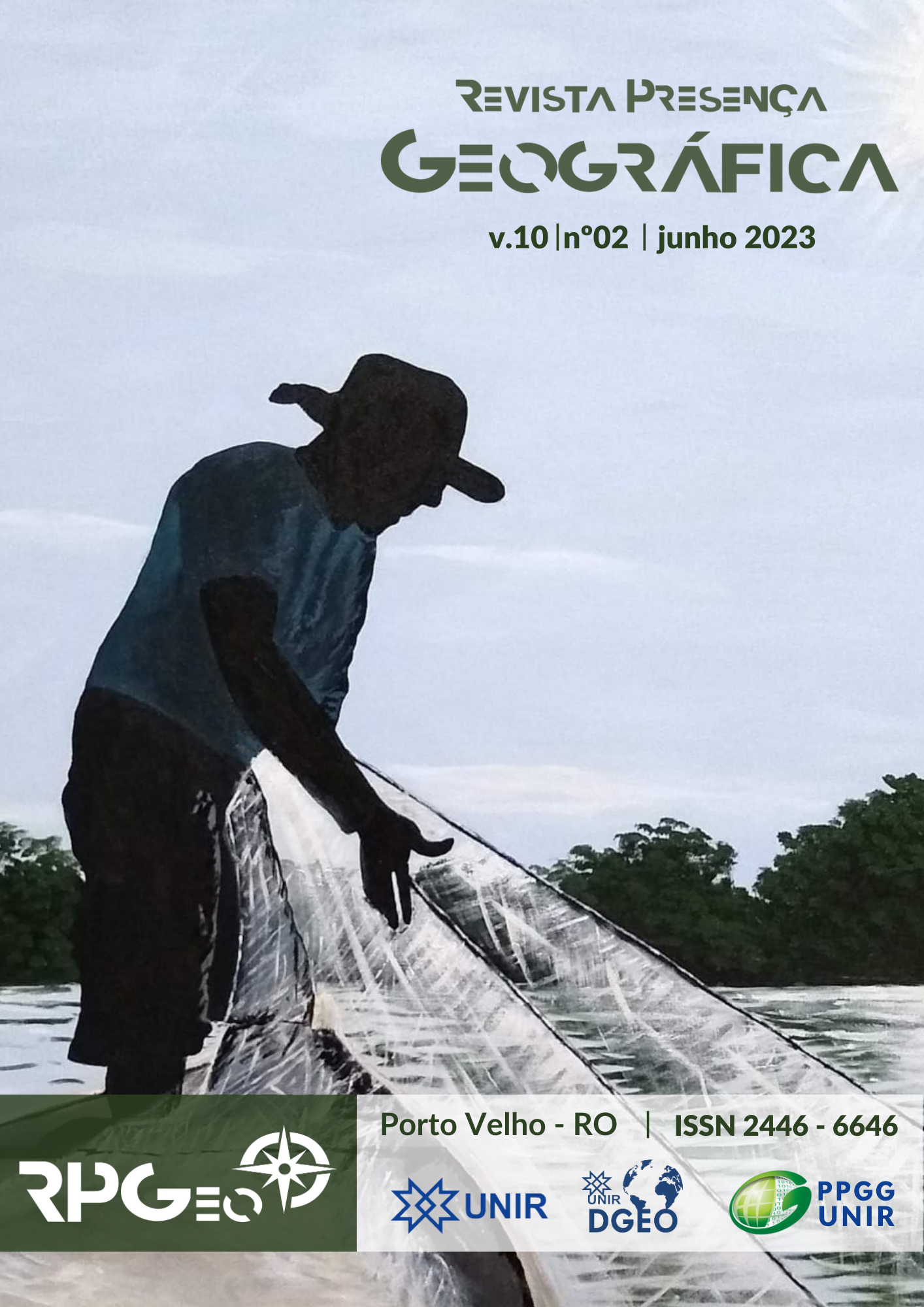RIVERINE COMMUNITIES AND THE IMPLEMENTATION OF THE RIO NEGRO – AMAZONAS SUSTAINABLE DEVELOPMENT RESERVE: CHALLENGES OF REGULATORY LEGAL NORMS
DOI:
https://doi.org/10.36026/rpgeo.v10i2.7384Abstract
The Sustainable Development Reserve ( RDS) is a legal instrument established with the purpose of ensuring the rights of existence and regulating the use and territorial occupation of traditional peoples, ensuring their permanence in their places of origin. Given the need for the legal standard to be compatible with the population group to which it applies, in order to obtain the expected effectiveness, this scientific research was based on understanding the challenges for the implementation of the RDS Rio Negro and its Management Plan, through the analysis of the formal rules established within this Conservation Unit of sustainable use and its socio-environmental efficacy before local riparians. The inductive approach method was performed, using bibliographic and documentary research for data collection, as well as field research, through semi-structured interviews aimed at families living in three riverside communities, located in the different Centers that make up the RDS, verifying the socio-environmental consequences derived from its creation, from the perspective of the residents. With this, it was found that there was no proper clarification in accessible language of the changes that would occur with its implementation, according to the law, as well as were not taken into account certain formal rules already established by these peoples before the creation of the RDS. Thus, there was an especially socioeconomic impact on the lives of riparians, who were prevented from performing some extractive practices, without, however, having an effective sustainable management counterpart in the region, with compensatory measures in order to minimize such damage.
Downloads
Published
Issue
Section
License
Copyright (c) 2023 Talita Benaion Bezerra Thevenin, Julien Marius Reis Thevenin, Edson Damas da Silveira

This work is licensed under a Creative Commons Attribution-NonCommercial-NoDerivatives 4.0 International License.
This work is licensed under Creative Commons Attribution-NonCommercial-NoDerivatives 4.0 Internacional license.
Authors who publish in this journal agree to the following terms:
- Authors retain the copyright and grant the journal the right to first publication, with the work simultane ously licensed under Creative Commons Attribution-NonCommercial-NoDerivatives 4.0 Internacional License that allows the sharing of the work with acknowledgment of authorship and initial publication in this journal.
- Authors are authorized to assume additional contracts separately, for non-exclusive distribution of the version of the work published in this journal (ex, publishing in institutional repository or as a book chapter), with acknowledgment of authorship and initial publication in this journal.
- Authors are allowed and encouraged to publish and distribute their work online (ex.: in institutional repositories or on their personal page) at any point before or during the editorial process, as this can generate productive changes, as well as increase the impact and the citation of the published work (See The Free Acess Policy).







